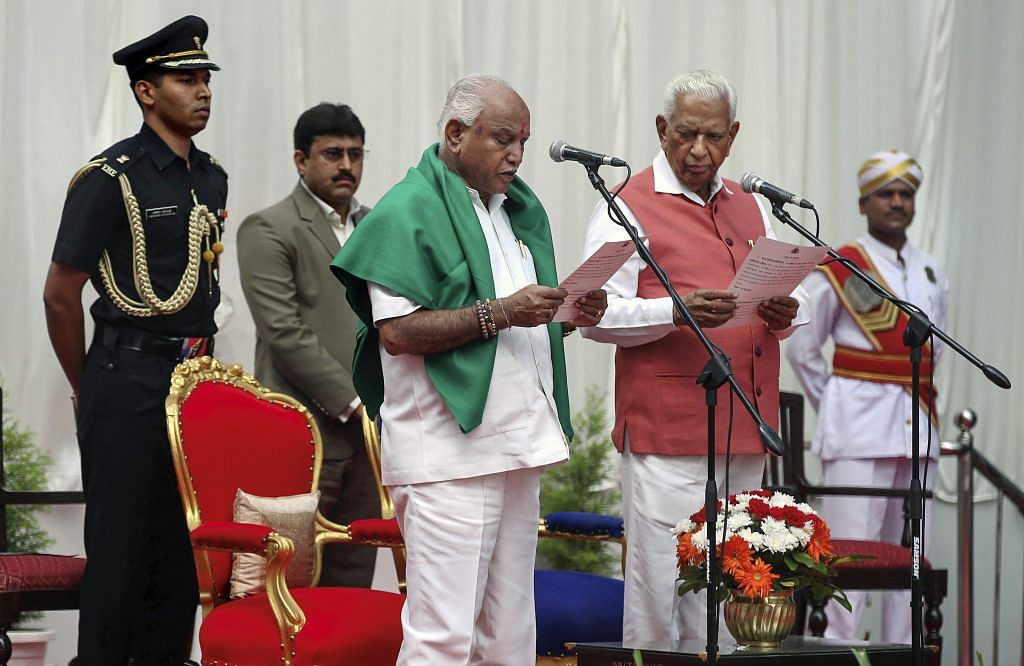Governor Vala may have erred in giving 15 days to form the government in Karnataka, but his actions are neither unconstitutional nor malafide.
The anti-defection law, as of today, is not irrelevant. Its application, though, will have to be adapted to new conditions and circumstances. The law needs to be implemented in an emphatic way. If resignations of MLAs are used to escape the anti-defection law, in cases where a member of a political party is made to resign, even though they do not defect to another party, then the law should be amended to take care of such situations. If people use resignation to escape the rigour of the law, then sure, the law should be amended to that effect.
However, there’s no reason to doubt Karnataka governor Vajubhai Vala’s impartiality.
Every erroneous judgment is not malafide or unconstitutional. The governor may have erred in giving in giving 15 days to form the government, but he is well within his rights to invite the BJP to form government in the state.
The governor certainly has discretion, and we expect that he does not exercise his discretion arbitrarily, but in accordance with the specific facts existing in a particular state. In Karnataka, for example, if after looking at the facts, he is of the view that he has to act in a certain manner, I don’t think his impartiality should be questioned.
In Karnataka right now, the situation is so fluid, nobody knows where parties go, where members go, so the crux of the matter is that the proof of majority has to be tested on the floor of the house, and if the governor invited B.S. Yeddyurappa to form the government, I don’t see any serious error.
If Yeddyurappa passes the floor test, well and good, otherwise the governor would have to give the opportunity to the coalition. His antecedents as a BJP or RSS member cannot be a reason to assume that he would be partial. A governor will surely rise above his past.
As for the Sakaria Commission, even though its guidelines are not legally bound, non-observance of the guidelines will certainly raise questions on the impartiality of the governor. In this case, the governor has invited the single largest party. Ultimately, the assessment is, who in his opinion can form a stable government.
The only thing which I felt wrong was the time of 15 days, which is a bit long. In order to ensure that there is no poaching, he should have given a short time to prove the majority.
Yet, the time cannot be prescribed by law. The time period has to be decided with the objective that the period will not be used for poaching.
As for the double standards of the BJP in Karnataka, on the one hand, and Meghalaya, Mizoram and Goa, on the other, in politics, regrettably, we have to reconcile ourselves to double standards – to the extent that there is no violation of the law.
But the spirit of the anti-defection law has to be upheld, and necessary amendments made, otherwise the law will become toothless.
(As told to Sanya Dhingra)
